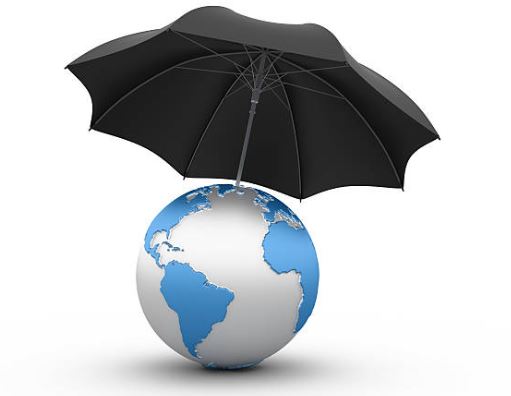Protection of Geographical Indications in Sri Lanka
Introduction
Sri Lanka being a country that is well equipped with natural resources and traditional knowledge has an immense potential of gaining socio – economic development through Geographical Indications. GIs should be protected in order to prevent consumers from being misled as to the true origin of the product and to protect the rights of the producers. Many Sri Lankan products that carry GIs, have attracted the global community because of the quality, reputation and characteristics that remain in these products. But in the recent past noticeable abusive acts were reported against Sri Lankan products; more emphatically with regard to Ceylon Tea.

GIs in its nature are attached with a particular geographical area and thus help to take the maximum use out of resources in the particular area. Because of the qualities, reputation and characteristics attributable to that particular geographical area people tend to buy these products and this reference to the geographical area is inherent in GIs. Although GIs function like a Trade Mark it distinguishes products originating from a certain source. Geographical indications and trademarks reward producers that invest in building the reputation of a product. They are designed to reward goodwill and reputation created or built up by a producer or a group of producers over many years or even centuries. They reward producers that maintain a traditional high standard of quality, while at the same time allowing flexibility for innovation and improvement in the context of that tradition.
Under the current legal status of Sri Lanka, the Intellectual Property Act No 36 of 2003 (IP Act) provides varieties of protection for GIs. Section 161 (1) (i) of the Act provides sui generis protection for GIs and it denotes that an interested party is entitled to prevent use of a GI, if the product does not originate in the original geographical area in a manner that mislead the public as to the geographical origin of goods. Here any interested party means not only producers and consumers, but also it will embrace general public as well. According to Section 161 (1) (ii), parties can rely on unfair competition where there is an act which constitutes unfair competition within the meaning of Section 160 of the IP Act. As per Section 160 (1) (a) of the Act, any act or practice carried out or engaged in, in the course of industrial or commercial activities, that is contrary to honest practices shall constitute an act of Unfair Competition. Though Unfair Competition could be expounded broadly, it is restricted to the situations where competition is perceptible in the market and also one has to establish his/her right before remedy is granted. Further, pursuant to Section 161 (1) (iii) of the IP Act use of a GI in translation or accompanied by expression such as kind, type, style or imitation or the like is prohibited. The Court can grant an injunction and any other relief deemed appropriate in above circumstances as per Section 161 (4) of the Act.
In addition to Section 161 of the IP Act, Act offers protection by way of a Certification Mark or a Collective Mark according to Sections 142 (3) and 138 (3) respectively. Certification marks are marks which indicate that the goods on which they are used are certified by the proprietor of the respective mark with regard to the origin, material, and mode of manufacture, of goods or performance of services, quality, accuracy or other characteristics. Presently, Ceylon Tea has been registered as a certification mark by Sri Lanka Tea Board. Under the Act, the owner of the certification mark is not authorized to use the mark (Intellectual Property Act No. 38 of 2003. Section 142 (5)). The owner controls the use of mark by making sure that the goods contain certain characteristics, qualifications and standards. Having a certification mark system for the protection of GI provides a number of benefits to a country. It will create a legal regime that is well known to both local and foreign enterprises.
However, Sri Lanka doesn’t have a registration system for GIs. This has caused to the abuse of Sri Lankan GIs at the international level. If Sri Lanka possesses a registration system of GI, it could have marketed products with great protection more specifically in Europe where there are people who prefer Sri Lankan products.
It is clear that the protection granted by the current law in Sri Lanka for GIs is not adequate when the products travel beyond its boundaries. But the commercial value that could be gained through GIs is imperative with regard to the development of the country. Therefore, it is recommended to have a system that will protect GIs at the international level also. This could be achieved by implementing a registration system for GIs.
Conclusion
Despite the fact that adequate protection has not been coffered for GIs in Sri Lankan legal framework, GIs have become a great economic tool with the potential of bringing foreign exchange to the country. The current situation of GI in Sri Lanka suggests that the available legal mechanisms to protect GI is adequate as far as the domestic protection is concerned, nonetheless, it is not sufficient when GIs travel beyond borders to the international market. Therefore, GIs have been often misused in the world market. More specifically ‘Pure Ceylon Tea’ known as ‘Black Gold’ in Sri Lanka had to face so much controversies in the world market. Albeit the four corners of the domestic protection are wider than the protection granted by the TRIPS Agreement, failure to introduce the registration system for GI has caused to place GIs back in the queue among other intellectual property rights.
Author: Tanya Saraswat- a student of Narsee Monjee Institute of Management Studies (NMIMS), in case of any queries please contact/write back to us at support@ipandlegalfilings.com or IP & Legal Filing.


